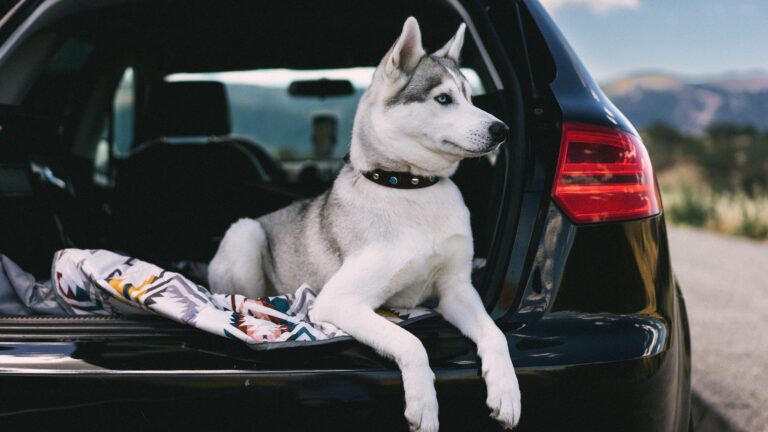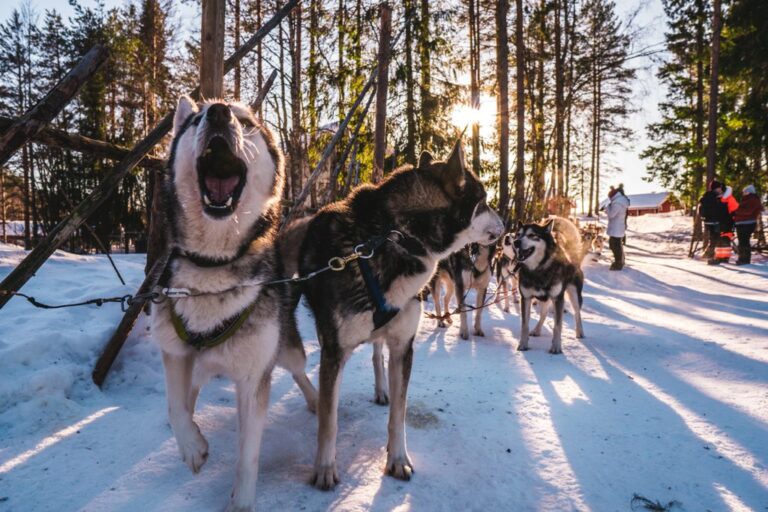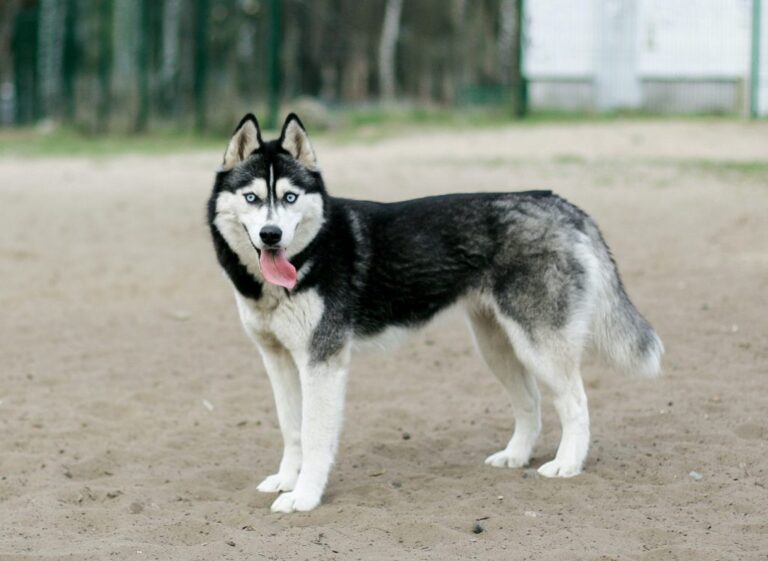Why Are Huskies So Dramatic? The Surprising Truth Revealed
Huskies are very well known for their attractive looks and loving personalities. Huskies have a playful and friendly nature, which makes them great pets in any family. However, huskies are also notorious for their dramatic behavior. If you own a husky, you may have experienced their wonderful melodramatic actions. They sometimes scream, sometimes howl, and even fake blows, which can be overwhelming for some owners. But why are huskies so dramatic?
In this article, we will explore the reasons behind dramatic behavior in huskies and give some tips to manage it.

Why are huskies so dramatic?
Huskies have a dramatic attitude due to their strong personalities and instincts. They were bred to communicate needs and emotions to their human companions as sled dogs and as working dogs. This means that they are vocal and expressive. Often, they shout to express their feelings.
But huskies are very intelligent and independent dogs. They need a lot of mental stimulation and exercise. When they don’t get enough attention or activity, they can become irritable and restless, leading to behaviors like destructive chewing or excessive barking.
They also have a strong hunting drive. Because of this, they can be easily distracted by animals and scents in their environment. This is indicative of their stubborn or disobedient attitude. But in reality, they just follow their instincts.
Huskies are very independent dogs and quite stubborn. If Huskies don’t want to do something or want to do something against their will, they will let it be known dramatically.
Overall, huskies are a unique and expressive dog breed. They take a lot of attention and training to bring out their best qualities. But with proper care, training, and understanding, they can make wonderful and entertaining companions.

Some Dramatic Behaviors of Huskies:
Huskies are expressive dogs. They can display a variety of behaviors. Including screaming, moaning, and even faking injury or death. Here’s what to know about these behaviors:
Huskies Howl: Huskies are particularly known for their unique howl, which they use to communicate with their owners or other dogs. They may cry when they are happy, sad, or want your attention. Huskies bark in response to certain sounds, such as conch shells, sirens, and musical instruments.
Whining: Huskies whine when they want attention, are anxious in pain, or feel restless. Huskies whine when they want to go outside or when they feel bored.
Fake Injuries: Some huskies fake injuries or limps to get attention or sympathy from their owners. They may limp for a few steps and then suddenly “recover” when they realize they are not getting the attention they would like. Before dismissing their behavior, it is important to make sure your husky is not injured or in pain.
Fake Death: Huskies can sometimes play dead or “freeze” when they don’t want to do something or when they are anxious, and when you try to calm them down, they’ll lie on their side and refuse to move. This behavior is more typical in husky puppies and may indicate that they require additional socialization and training.
But keep in mind that not all Huskies exhibit such dramatic traits. If your huskies continue to display these dramatic traits and cause you concern, it is important to speak with a reputable veterinarian to resolve the issue.

How Bad Is Husky’s Drama?
Husky is a great pet. However, your husky can sometimes act very foolishly with reactive or dramatic behavior.
So you should start training your Husky as soon as possible. Never encourage or condone their dramatic behavior. Remember that huskies can easily trick you and get you into trouble. Consequently, you must pay attention to how you learn.
Can We Stop The Huskies From Being So Dramatic?
Huskies are known to be highly expressive and dramatic dogs. Although it is not possible to eliminate these characteristics from them, their dramatic behavior can be minimized by following some rules.
- Set Consistent Rules and Boundaries: Huskies need to set consistent rules and boundaries and enforce them consistently. This will help the Huskies understand what is acceptable and what is non-acceptable behavior and will help reduce unwanted drama.
- Early Socialization and Adequate Training: Huskies need early socialization and adequate training from a young age to learn proper behavior and appropriate ways to express themselves. This will help the Huskies understand what is expected and reduce unwanted and excessive drama.
- Adequate Exercise and Stimulation: Huskies need lots of exercise and mental stimulation for high energy and to stay happy and healthy. Therefore, dramatic behavior can be reduced by keeping them busy with enough exercise and activities.
- Positive Reinforcement: Positive reinforcement is praise and behavior. It can be used to reinforce good behavior and discourage bad behavior. This can help huskies learn to express themselves in appropriate ways.
It is important to remember that huskies are naturally expressive and dramatic dogs. They are expected to have some level of these characteristics. Proper socialization, training, care, adequate exercise, and reinforcement can help reduce their excessive drama and make them happy and well-behaved companions.
Being Vocal Is a Sign Of The Dramatic Behavior Of Huskies
Huskies tend to be quite vocal and expressive. As a result, some people tend to perceive him as having dramatic behavior. They growl, howl, bark, and make other noises to communicate with their owners and other dogs. But this behavior is a natural part of their breed and not necessarily a sign of drama or problem behavior.
Huskies are very social dogs, and they use their voice to communicate their emotions and needs. With proper training and socialization, Husky puppies can learn to control their vocalizations and become well-behaved and obedient pets.
How to Train Huskies to Control Their Vocal and Dramatic Behavior:
Huskies need training to control vocalizations and dramatic behavior. Training them can take time and patience. But it is possible with consistent and positive reinforcement. Here are some tips that will help you train your husky:
Socialize Your Husky: Expose husky puppies to a variety of people, dogs, and environments from an early age. This will help them develop confidence and reduce the likelihood of anxious or fearful behavior, which can lead to excessive vocalization.
Reward Good Behavior: Praise and reward your husky with treats or toys whenever they are calm and quiet and show good behavior. This will reinforce their behavior and encourage them to stay calm and quiet.
Ignore Bad Behavior: If your husky is barking, growling, or being dramatic for attention for no reason, it’s important not to reward them with attention. Ignore the behavior until they calm down, and when they do, praise and reward them.
Teach the “Quiet” Command: When your husky is barking or growling for no reason, say “quiet” in a calm but firm voice. When they stop barking, immediately praise and reward them. With proper practice, your husky will learn to associate commands with desired behaviors.
Exercise Your Husky: A tired husky is a happy and calm husky. Make sure your husky gets plenty of exercise every day and gets mental stimulation to reduce the chance of excessive vocalization.
Remember that training Huskies takes time, and every Husky is different. You will therefore see improvements over time if you are persistent and patient in your training.
Conclusion:
In conclusion, in this article, we learn “Why are huskies so dramatic?”. Huskies are known to everyone for their vocal and expressive behavior. But this is a normal part of the Huskies’ breed and is never necessarily a sign of drama or problematic behavior. With proper socialization, training, and exercise, Husky puppies can learn to control their vocalizations and become well-behaved and obedient pets.
Their vocal and dramatic behavior can be controlled by rewarding good behavior, ignoring bad behavior, teaching “quiet” commands, and providing plenty of exercises. You need to be patient and consistent with your training, and if you struggle to manage your husky’s behavior, always seek the help of a professional trainer.
Hi, I’m Piyas! I am a dog lover, trainer & blogger. I am passionate about pet dogs and love to learn and research how to care for, train, and learn all about them.






